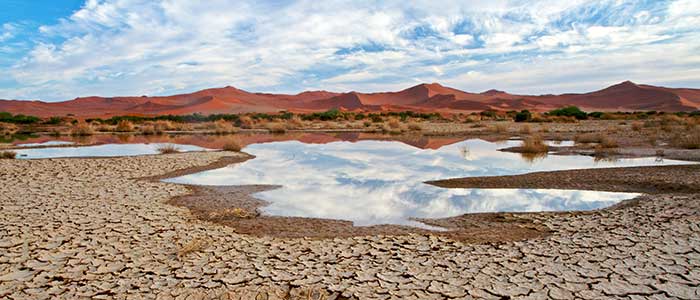Web_DroughtZambia_shutterstock_74778760.jpg

Drought in Africa
The bank said growing populations, rising incomes, urbanisation and climate change could see water become scarce in regions where it is currently abundant and severely increase scarcity in regions where it is already in short supply.
Publishing a new report today, World Bank president Jim Yong Kim said that this presents a major threat to growth and stability around the world.
The report points out that economic growth is a “surprisingly thirsty business” and warns some of the worst affected regions could see a substantial loss to their gross domestic product if they continue with business as usual.
The Middle East could lose out on as much as 14% of the economic growth it could achieve by 2050 if better water management policies were implemented, while Africa’s Sahel region could forgo 11.7%.
Central and eastern Asia would take the biggest hits after this, losing as much as 10.72% and 7.05% respectively.
Some cities could see water availability drop by as much as two thirds by the middle of the century.
While regions like north America and western Europe would be largely unaffected, the report highlights that in an increasingly interconnected world, such problems are “impossible to quarantine”.
Drought could spark increases in violence and conflict, while water-intensive goods, including food, would become more expensive, affecting health and human capital, ecosystems and trade.
This in turn would likely spark migration, as populations leave drought-ridden regions for more prosperous, greener pastures.
Richard Damania, World Bank lead economist and author of the report, pointed out that there is a “silver lining”.
With better water management policies the world could effectively mitigate and control the impacts of shortages, he said.
These include working to decouple water from economic growth, ‘water-proofing’ economies and build resilience against extreme weather events and expanding supply and availability where appropriate.
But simply optimising the current use of water through better planning and increased efficiency could go a long way, the report found.
Wastage in many countries is high, with some losing more water to leaky pipes than they successfully deliver to households.
The report acknowledged that adopting policy reforms and investments will be demanding, but warned that the costs of inaction will be much higher in the “thirsty and uncertain” future.













